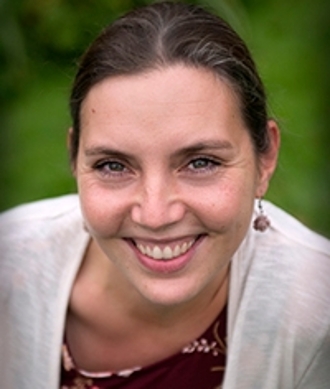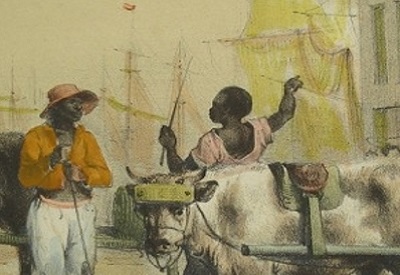
Languages, cultures and worldviews
Our contribution to society:
Studying one another’s languages and cultures fosters understanding between groups of people, which leads to more equality, along with increased economic, administrative, and cultural cooperation.
News
What our language and culture experts have to say
Are you curious about our experts? If so, take a look at this short video featuring some of these experts:
- Alisa van de Haar, French Language and Culture: 'In the Netherlands we are very focused on the Dutch and Anglo-Saxon world. But the world is bigger than that.’
- Thijs Porck, English Language and Culture: 'The best way to study a culture and its history is in the language people used at that time.’
- Florian Schneider, Chinese Language and Culture: 'What happens in China isn’t so very different from the Netherlands; it just moves at a different pace and within different parameters.’
Want to know more? Watch the mini-docu.
Due to the selected cookie settings, we cannot show this video here.
Watch the video on the original website orOur research and teaching
Studying one another’s languages and cultures leads to more inclusion and equality with greater economic, administrative and cultural collaboration. And that is essential to tackling grand challenges, such as climate change, migration and war.
Our research and teaching focus on languages and cultures from all around the world, from thousands of years ago to the present. By studying languages, cultures, regions, history, religions, literature, art and philosophy in tandem, we broaden our perspective on the world.
Leiden is an expert in the following regions: Africa, Asia, Europe, South America, North America, the Middle East, and Russia and Eurasia. When it comes to languages, Leiden is the most global university in the Netherlands.
We use original sources ranging from clay tablets and oral histories to digital text collections, using advanced digital tools to work with these sources. We are experts in linguistics in all its forms: in written literature, in the use of language and in historical languages. We also have a wealth of knowledge on culture and its reflection in films, music and digital media. This knowledge helps us help society: for instance, with advice on education, diplomacy or how social media can give rise to new forms of communication. We also provide long-term insights on topical issues such as migration, globalisation and culture contact.
Research projects
-
 From Aleph to Alpha: The spread and development of alphabetic writing across the Mediterranean
From Aleph to Alpha: The spread and development of alphabetic writing across the Mediterranean -
The language and argumentation of Russian propaganda
-
 What’s wrong? Ancient Corrections in Greek Papyri from Egypt
What’s wrong? Ancient Corrections in Greek Papyri from Egypt -
 Worlding America: How Play Shaped the United States between New Media and New Politics
Worlding America: How Play Shaped the United States between New Media and New Politics -
 Claiming Beowulf as a European Epic: Non-Anglophone Appropriations of an Old English Poem
Claiming Beowulf as a European Epic: Non-Anglophone Appropriations of an Old English Poem
Experts
-

Nancy Kula Topics: africa, descriptive linguistics, language policy, languages and cultures of the world, morphology, multilingualism, phonology, theoretical linguistics -

Carmen van den Bergh Topics: digital humanities, film and culture, italian literature, italian modernism, languages and cultures of the world -

Casper Wits Topics: chinese foreign relations, chinese studies, eu foreign policy, european policy, international relations, japanese studies, languages and cultures of the world -

Joanne Stolk Topics: early litteracy, languages and cultures of the world, morfology, papyrology -

Matthijs Westera Topics: ai and society, computation linguistics, languages and cultures of the world, natural language processing, questions, semantics-pragmatics interface, semantics-prosody interface, the human digital world, theoretical linguistics -

Rogier Creemers Topics: big data and policymaking, china, cybersecurity, international relations, languages and cultures of the world, the human digital world -

Lettie Dorst Topics: automatic translation, computer-aided translation, corpus linguistics, languages and cultures of the world, literary translation, metaphor studies, subtitling, the human digital world -

Esther Op de Beek Topics: dutch language and culture, dutch literature and culture, happiness and emotion in literature, languages and cultures of the world, new media and literature -

Martine Bruil Topics: constructing heritage, cultural heritage, descriptive linguistics, indigenous languages, language diversity, languages and cultures of the world, south-america, south-american linguistics -

Thijs Porck Topics: constructing heritage, early middle ages, english language and literature, languages and cultures of the world, medieval history, old english language -
Florian Schneider Topics: china, chinese economy, chinese media, chinese studies, digital humanities, east-asia, languages and cultures of the world, political communication, the human digital world, traditional chinese political thought -

Remco Breuker Topics: central asian history, human rights, korean film, korean history, korean studies, languages and cultures of the world, modernity, north korea, world history -

Petra Sijpesteijn Topics: arabic studies, embedding conquest, islam and society, islamic history, islamic studies, languages and cultures of the world, middle eastern studies, papyrology -

Victoria Nyst Topics: africa, descriptive linguistics, languages and cultures of the world, sign language, the human digital world -

Peter Bisschop Topics: ancient cultures of south asia, centre for intercultural philosophy, languages and cultures of the world, sanskrit -

Jürgen Zangenberg Topics: ancient history, ancient jerusalem, ancient judaism, ancient palestine, ancient synagogues, dead sea, early christianity, galilee, greco-roman history, jesus, jewish studies, languages and cultures of the world, qumran, roman history, samaritans -

Egbert Fortuin Topics: languages and cultures of the world, pragmatics, russia, russian linguistics, semantics, sociolinguistics, syntax, typology -

Olaf Kaper Topics: egyptian religion, egyptology, languages and cultures of the world, ptolemaic egypt -

Petra de Bruijn Topics: area studies, islamic studies, languages and cultures of the world, middle east, performance art, turkey -

Lisa Cheng Topics: asia, bantoe, chinese language, comparative syntax, languages and cultures of the world, languages, cultures and worldviews, morpho-syntax interface, syntax, syntax-prosody interface, syntax-semantics interface, theoretical linguistics, zulu language -

Jan van Dijkhuizen Topics: english literature, languages and cultures of the world, literature, scenses -

Keiko Yoshioka Topics: japanese language, japanese language and linguistics, japanese studies, languages and cultures of the world, second language acquisition -

Alp Yenen Topics: languages and cultures of the world, middle east, modern turkish history, political history, transnational and international history, turkey, turkish studies -

Alisa van de Haar Topics: cultural translation and reception, history of cultures, knowledge and ideas, languages and cultures of the world, north america
Regional Expertise
Leiden possesses in-depth regional expertise. Languages, cultures, history, religions, literature, art, and philosophy are studied within each region in their interrelated context. This approach generates new insights and a broader perspective on every region. Thanks to this integrated method, Leiden experts are better able to interpret current developments and place them in context. Explore our expertise by region:

Events
-
Unbefitting healing objects?
-
'Au Liban', but 'en Iran': external sandhi in French prepositions at the syntax-phonology interface
-
Creating a sign language out of everything and everywhere: An example from the deaf people of Bissau
-
Frying and tweeting. Perception and production aspects of social meaning as a change determinant
-
Challenges in the Historical Comparison of Sign Languages: Lessons from the Sign Change Project
-
Skill issues: conceptual metaphors and the etymology of Vedic r̥tá
-
The syntax of non-clausal manner adverbials
-
How infants learn about language within their social context - experimental and observational evidence
-
Between deference and destitution: Requesting relief in Scottish pauper letters, 1750-1910
-
Mistaken Identities
-
Adjectival Doubling Construction - 'I almost forgot the most importantest part'
-
Neoplatonism in the Christological Debates of Late Antiquity: Influences, Interferences, and Contrasts
-
No phases
-
Colonial government by correspondence: the British government's communicative practice in colonial bureaucracy at the turn of the twentieth century in southern Africa
-
Modality without moods? Preliminary considerations for a systematic study of modal strategies in Hittite
-
A Historical and Etymological Look at Co-Speech Gestures and Signs
-
Pragmaticalization or grammaticalization? A multidimensional model of the evolution of pragmatic markers
-
Negation in Dutch Sign Language
-
Sealing and bookkeeping practices in Hittite Anatolia
-
Literacy development for Deaf/Hard-of-hearing children in the early years
-
Symposium: Through the Hands of Signers: History of sign language emergence, transmission, and change
-
55th Colloquium on African Languages and Linguistics










